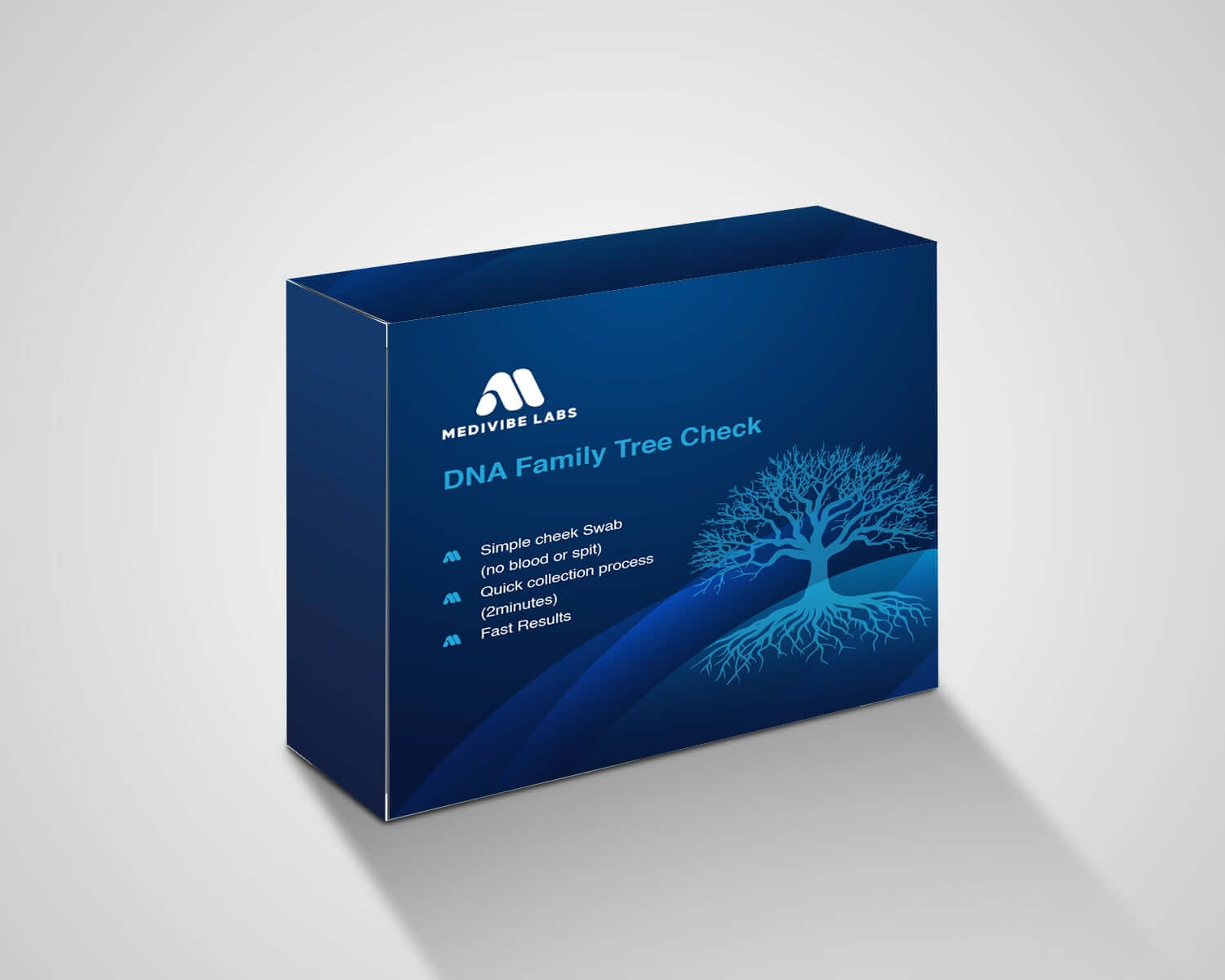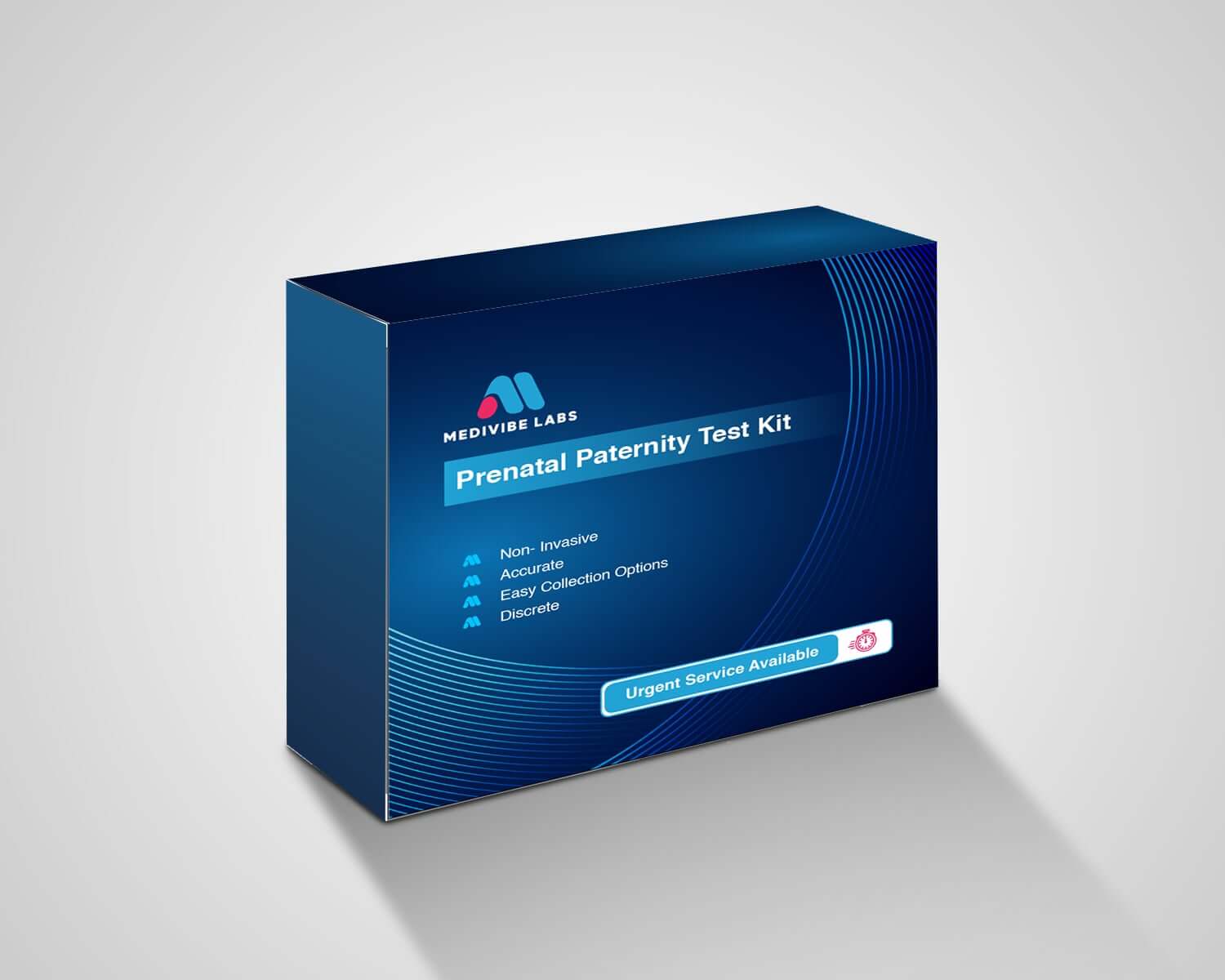Description
Ancestry DNA tests can provide fascinating insights into your genetic heritage, helping you learn more about your ancestral roots and ethnic backgrounds. They analyze specific markers in your DNA to estimate your origins and can connect you with potential relatives.
Here are some key points to consider if you’re thinking about taking an Ancestry DNA test:
- Types of Information: Most tests provide an ethnicity estimate, geographic origins, and potential connections to relatives who have also taken the test.
- Privacy Concerns: Understand the privacy policies of the company you choose. Make sure you’re comfortable with how your data will be used and stored.
- Testing Process: Generally, you’ll receive a kit with a saliva collection tube. Once you send it back, results typically take a few weeks to process.
- Interpreting Results: Results can be intriguing but may require some context. Historical migrations, genetic mixing, and various factors can influence your ethnic makeup.
- Connecting with Relatives: Many tests include features that allow you to connect with potential relatives, which can be a great way to expand your family tree.
- Limitations: Remember that these tests are estimates and may not provide a complete picture of your ancestry.
Ancestry testing involves analyzing an individual’s DNA to uncover their genetic heritage and ethnic background.
What is Ancestry Testing?
Ancestry testing typically uses a sample of saliva or cheek cells to examine genetic markers in your DNA. These markers can reveal information about your ancestry, including:
- Ethnic Background: Provides an estimate of your ethnic makeup, often broken down into percentages representing different regions or populations.
- Geographic Origins: Identifies specific regions or countries where your ancestors may have lived.
- Family Connections: Connects you with potential relatives who have also taken the test, allowing for the exploration of your family tree.
How It Works
- Sample Collection: You receive a testing kit, usually containing a saliva collection tube. You follow the instructions to provide a sample.
- Laboratory Analysis: The sample is sent to a lab where it is analyzed for specific genetic markers. This process often takes several weeks.
- Results: Once the analysis is complete, you receive your results online, detailing your ethnic estimates and possible relatives.
Benefits of Ancestry Testing
- Discovering Heritage: Learn about your ancestral origins and how they contribute to your identity.
- Building Family Trees: Connect with relatives and expand your understanding of your family history.
- Cultural Insights: Gain insights into the cultures and histories associated with your genetic background.
Considerations
- Privacy: Review the company’s privacy policy to understand how your data will be used and shared.
- Accuracy: Results are estimates based on available genetic data and may evolve as more information becomes available.
Taking an Ancestry DNA test can offer numerous benefits and insights. Here are some compelling reasons to consider:
- Discover Your Roots
- Uncover your ethnic background and learn about the regions and cultures that contribute to your identity.
- Build Your Family Tree
- Connect with relatives you may not know about and gather information to expand your family history.
- Understand Genetic Health Risks
- Some tests provide information on genetic predispositions to certain health conditions, helping you make informed health decisions.
- Cultural Connection
- Gain a deeper appreciation for your heritage and potentially connect with traditions, languages, or customs linked to your ancestry.
- Curiosity and Personal Identity
- Satisfy your curiosity about your origins and how they shape who you are today.
- Support for Genealogical Research
- Complement traditional genealogical research with DNA evidence, offering a more comprehensive view of your family history.
- Find Biological Relatives
- Reconnect with biological family members, which can be particularly meaningful for those who may have been adopted or separated from family.
- Join a Community
- Many ancestry testing services offer platforms to connect with others who share similar backgrounds or interests in genealogy.
- Evolving Insights
- As genetic research advances, your results may be updated to reflect new discoveries, enhancing your understanding of your ancestry over time.
- Educational Experience
- Learn about human migration, genetics, and the interconnectedness of populations throughout history.
Frequently asked questions
- What is an Ancestry DNA test?
An Ancestry DNA test analyzes your genetic material to provide insights into your ethnic background, geographic origins, and potential family connections.
- How does the testing process work?
You receive a kit with instructions to collect a saliva sample or cheek swab. After sending it back to the lab, results are typically ready in a few weeks.
- What kind of information will I receive?
You’ll get an ethnic breakdown (percentage from different regions), geographic ancestry, and possible connections to DNA relatives.
- Is my DNA data safe?
Most reputable companies have privacy policies detailing how they handle your data. You can often choose how much information you share and with whom.
- How accurate are the results?
Results are estimates based on current genetic data and can evolve as more research becomes available. Accuracy may vary depending on your ancestry.
- Can I learn about health risks from an ancestry test?
Some ancestry tests include health information, but not all do. Make sure to choose a test that provides this option if you’re interested.
- What if I don’t find any close relatives?
Not everyone has a significant number of relatives in the database, so results can vary. Keep in mind that genetic connections might not always lead to immediate family ties.
- Can I use my results for genealogy research?
Yes, Ancestry DNA results can complement traditional genealogical research by providing DNA evidence and connecting you with potential relatives.
- What happens if I take a test from another company?
Different companies use varying reference populations and algorithms, which can lead to differing results. It’s common for individuals to have varying ancestry estimates.
- Can I update my results later?
Yes, many companies periodically update their databases and algorithms, which may lead to updated ancestry estimates over time.
- Who should consider taking an Ancestry DNA test?
Anyone interested in learning more about their heritage, connecting with relatives, or exploring their family history can benefit from taking a test.
- Is there an age limit for testing?
Most companies require parental consent for minors. It’s best to check the specific age policies of the company you choose.
- How much does an Ancestry DNA test cost?
Prices can vary widely depending on the company and the specific test you choose, typically ranging from $59 to over $100. Sales and promotions are common, so it’s worth keeping an eye out for deals.
- How do I interpret my results?
Most companies provide a user-friendly online platform that explains your results in detail, often including maps, charts, and information about historical migrations. You can also find educational resources to help you understand your ancestry.
- Can the test determine my specific family members?
While the test can identify potential relatives based on shared DNA, it won’t provide names or specific relationships. You might need to do additional research to confirm connections.
- What is an ethnicity estimate?
An ethnicity estimate is a percentage breakdown of your ancestry by region. It is based on genetic markers compared to reference populations and can give insights into your ancestral heritage.
- How long does it take to get results?
Results typically take about 6 to 8 weeks, though this can vary depending on the testing company and their current processing times.
- What if I have a mixed ethnic background?
Your results may reflect the diverse ancestry within your family. It’s common for people to have multiple ethnicities represented in their results.
- Are there any risks involved in taking an Ancestry DNA test?
Generally, the main concerns are privacy and data security. Ensure you understand the privacy policy of the company you choose and how your data will be used.
- Can I take an Ancestry DNA test if I have limited family history information?
Yes! Ancestry DNA tests can provide valuable information even if you have little knowledge of your family history. They can help fill in gaps and reveal connections you might not have otherwise discovered.
- Can the test identify my Native American ancestry?
While some tests may suggest possible Native American ancestry, it’s important to note that results can vary. Native American heritage can be complex and may not always be detectable due to historical factors.
- What happens if I want to withdraw my data?
Most companies allow you to delete your account and data upon request. Check the specific company’s policy for the process to withdraw your information.
- Is the test affected by adoption or non-paternity events?
Yes, if you were adopted or there were non-paternity events in your family, your results may not reflect what you expect based on family lore. DNA testing reveals biological connections.
- Are there specific tests for different populations?
Some companies offer specialized tests that focus on certain ethnic groups or regions. If you have a specific interest, it’s worth exploring these options.





Reviews
There are no reviews yet.